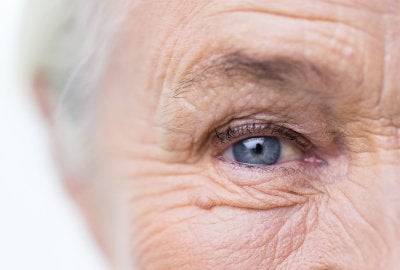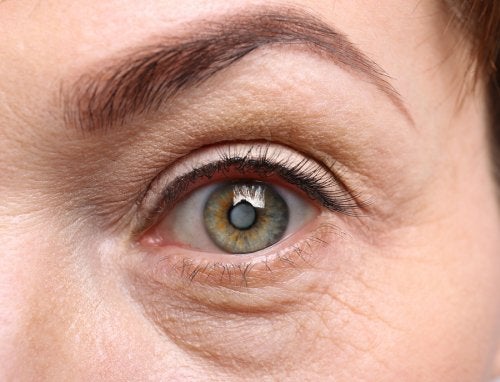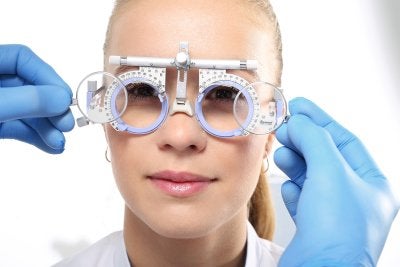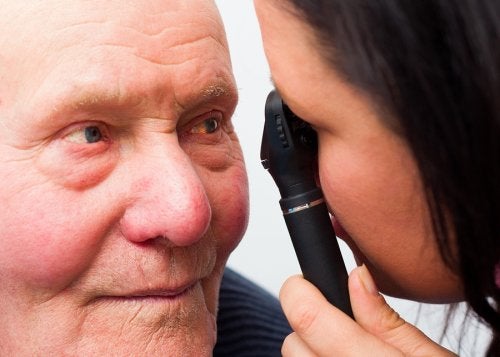-
Finding the Best IOL for You
Intraocular lenses (IOLs) allow many people with cataracts to see clearly again. If you’re considering speaking with your ophthalmologist in Chicago about the benefits of cataract surgery with intraocular implants , then watch this video to learn about finding the best IOL for you.
Before your surgery, your ophthalmologist will measure your eye to determine what strength IOL is right for you. The different types of IOL designs will affect how well you will see without corrective eyewear. To determine the best choice of IOL for you, you will work together with your ophthalmologist and consider factors such as the health of your eyes, your vision needs, and your treatment goals.
-
Recognizing Household Eye Hazards
Good eye care and visits to your eye doctor in Chicago are important year-round. However, October is eye safety month, so now is a great time to learn what objects around your house may pose a threat to your vision. Continue reading to discover some common household eye hazards.

Lawn and Garden Work
If you’re planning to spend time in your yard this season to get your lawn and garden ready for cold weather, then be sure to wear protective eye gear when you do. Tasks that you may have done countless times, such as mowing the lawn or using an electric trencher, can pose a danger to your eyes, as grass, pebbles, twigs, and similar objects may fly out from under the equipment toward your face. For this reason, whether you’re trimming the hedges or the lawn, you can help avoid a trip to the eye doctor by remembering to protect your eyes.
Home Improvement Tasks
If you’re like many homeowners, then you do what you can to take care of basic repairs around the home. While this can be practical and economical, it’s critical to think of your safety when taking on DIY home improvement tasks. Remember to wear safety goggles when you use a drill or hammer nails, work with solvents or hazardous chemicals, or secure objects with bungee cords. Whenever you use tools of any kind or perform tasks that may produce eye irritants or airborne fragments, remember to shield your eyes with the right protective gear.
Day-to-Day Tasks
There are also many everyday activities that can be potentially harmful to your eyes. For example, hot liquid or oil that splatters while you’re cooking can lead to burns, and allowing the cork to fly when opening a bottle of champagne can also cause an eye injury. Taking care to recognize potential hazards for your eyes, no matter what the activity, can help protect your vision. Speak with your eye doctor to learn what else you can do to protect your eyes from household hazards.
-
Preserving Your Eyesight as You Age
September is Healthy Aging Month, and people of all ages and walks of life are invited to participate. After all, good health in your golden years starts with a commitment to preventive wellness earlier in life. And if you’re already eligible for an AARP card, it’s never too late to get serious about your wellness. As you celebrate each passing year, you should pay attention to the changing needs of your eye health. In Chicago, eye doctors encourage patients to schedule regular exams, even if they don’t wear eyeglasses or contact lenses.

Schedule an eye exam.
Your ophthalmologist will let you know how often you should schedule an eye exam. If you’re 65 or older, you’ll probably need one every year or two. A comprehensive eye exam is an opportunity for the doctor to check for potential red flags of eye disease. With early treatment, it’s possible to delay the progression of eye diseases. It isn’t always easy to remember to schedule an appointment that only happens every year or two. Solve this problem by making your next appointment before you leave the optician’s office, and check that the office will send you a reminder card or email.
Wear sunglasses.
Sunglasses are much more than just a fashion statement. They can protect your eyes from the harmful ultraviolet (UV) rays. UV light increases the risk of cancer, cataracts, and growths on the eye. Look for sunglasses that offer broad-spectrum UV protection, and wear them each time you go outdoors. If you wear prescription eyeglasses, you can visit an optical center to order prescription sunglasses. Wearing a wide-brimmed hat can also help shield your eyes.
Quit smoking and avoid secondhand smoke.
There are dozens upon dozens of compelling reasons to quit smoking, including its detrimental effects on eye health. Smokers are more likely to be diagnosed with macular degeneration, cataracts, and dry eyes. They’re also at a higher risk of cardiovascular diseases, which can indirectly worsen eye health. It’s never too late in life to quit smoking. Consider it an investment in your future, just like saving for retirement. If you don’t smoke, don’t start. Avoid being near anyone who is smoking, as secondhand smoking is also harmful.
-
Comparing Monofocal and Multifocal IOLs
Your options for cataract treatment in the Chicago area include monofocal and multifocal intraocular lenses (IOLs). During cataract surgery, the eye doctor removes the cloudy natural lens of the eye and replaces it with one of these types of intraocular implants. Most often, doctors implant monofocal IOLs. This type of lens is engineered to help patients focus at one distance—near, medium, or distance vision. Patients usually opt to have the lens provide clear distance vision. They will then use reading glasses for up-close work.
Multifocal lenses are more complex. This IOL features different zones, each with its own focusing power. In other words, multifocal lenses offer both near and distant focusing capabilities simultaneously. They work in a similar way as bifocal or multifocal contact lenses. Multifocal lenses are ideal for people who do a lot of reading or other close work, and who aren’t enamored of the idea of using reading glasses frequently.

-
Exploring Your Glaucoma Treatment Options
An optic nerve transmits impulses from each eye to the brain. This allows the information that enters the retinas to be interpreted by the brain. The optic nerve is essential for your clear, healthy vision , and if this nerve sustains damage, blindness can result. Glaucoma refers to a group of eye problems that involve damage to this crucial nerve. If you’ve been visiting an ophthalmologist in Chicago for regular eye exams, then you’re more likely to be diagnosed with glaucoma early on. Your eye doctor can get you started on treatments to delay the progression of vision loss.

Medicated Eye Drops
Most people diagnosed with glaucoma start their treatment with prescription eye drops. There are different classes of medicines that can treat glaucoma, including the following:
- Beta blockers
- Prostaglandins
- Alpha-adrenergic agonists
- Carbonic anhydrase inhibitors
- Miotic or cholinergic agents
These eye drops regulate the pressure within your eye, which is called the intraocular pressure. By preventing the intraocular pressure from rising too high, the eye drops can delay or halt further damage to the optic nerve.
Oral Medications
Sometimes, eye drops by themselves aren’t sufficient to get the intraocular pressure down to ideal levels. The ophthalmologist might prescribe an oral medication to take in addition to your eye drops. Before taking any new medication, make sure your eye doctor has current information regarding your other prescriptions and medical conditions.
Laser Treatment
Another treatment option for glaucoma is laser surgery. If you have open-angle glaucoma, your doctor may perform a trabeculoplasty. He or she will use a special laser to improve the drainage of the intraocular fluid to reduce the pressure. Another laser surgery is an iridotomy, which is appropriate for patients with angle-closure glaucoma. This treatment also improves the drainage of intraocular fluid.
Eye Surgery
An ophthalmologist may recommend surgery performed without the use of lasers. One option is the implantation of a very tiny drainage tube. The surgeon will also create a reservoir underneath a thin membrane called the conjunctiva. The tiny tube sends intraocular fluid to the reservoir, and from there, the fluid absorbs harmlessly into the blood vessels.
-
Help Protect Your Vision with Regular Eye Exams
Just like physical exams and dental check-ups, eye exams from an ophthalmologist are an essential part of a complete preventive wellness plan. If it’s been longer than a year or two since you’ve visited an optical center near Chicago, it’s time to make an appointment. Even if you aren’t experiencing any vision problems, it’s important to have regular eye exams . You can learn why when you watch this animation.
It explains that the symptoms of serious eye diseases aren’t always detectable right away. You might not experience dark spots or cloudy vision until diabetic retinopathy and cataracts are already in the advanced stages—but an eye doctor can. He or she will let you know how often you should get an exam, based on your family health history, personal health history, and age. And if you do experience any sudden changes in your vision, get to an optical center right away.
-
What to Consider When Choosing Your IOLs
Millions of Americans suffer from poor eyesight due to cataracts, but many will enjoy restored vision after undergoing surgery for intraocular lenses or IOLs. If you’re planning to see an ophthalmologist for intraocular implants in Chicago , then keep reading to learn what you should consider when selecting the right IOLs for you.

Insurance Coverage
There are several types of IOLs, and not all are covered by insurance. However, the cost of the most traditional option, which is a monofocal lens, is covered by most insurance companies and Medicare. For this reason, if the cost of your IOLs will affect your decision, then this option may be best for you. Monofocal lenses are made to provide patients with the best possible corrected vision at near, far, or intermediate distances.
Device Usage
If you spend a significant amount of time using a computer, tablet, or smart phone, then your ophthalmologist may recommend monofocal intraocular lenses that are set to provide you with monovision. In this situation, one lens is designed to provide near vision and the other one distance vision. However, if you want results that provide you crisp vision, then a monovision approach may not be for you.
Treatment Goals
If you’re hoping to eliminate the need for glasses by undergoing cataract surgery, then your doctor may recommend multifocal lenses. These are a newer variety of IOLs that may be able to correct both distance and near vision for the patient, as well as reduce or eliminate the need for eyeglasses. These IOLs are quite expensive and are rarely completely covered by insurance.
Astigmatism Level
Toric IOLs are intraocular lenses that provide the wearer with added correction for astigmatism. Commonly, people who have moderate to advanced astigmatism prefer toric IOLs, but these may not be fully covered by insurance.
Driving Habits
If it’s important for you to be able to drive at night, then consider that multifocal lenses can have side effects like decreased contrast sensitivity, glare, and halos around lights. If you regularly drive at night, then monofocal IOLs may be the better choice for you.
-
Cataracts 101
Cataracts are an eye condition that typically causes blurry, dim, or cloudy vision. If your ophthalmologist has diagnosed you with this disease and recommended that you consider getting intraocular implants through cataract surgery near Chicago , then watch this video to understand the basics of this condition.
Cataracts are a common eye problem that affects millions of individuals as they age, and it develops when a person’s eye lens, which is normally clear, becomes cloudy. This condition is typically the result of age-related changes that affect the eye and is seen most commonly in individuals over age 60. This condition cannot be reversed, but an ophthalmologist can remove cataracts and restore vision in most cases.
-
How Is Glaucoma Diagnosed?
Visiting your local optical center in Chicago for routine checkups with an eye doctor is important for protecting your vision and practicing good eye care. However, this is particularly true for individuals over age 40. At this stage in your life, you have a greater risk of developing glaucoma.
Glaucoma is an eye disease that causes damage to the optic nerve. Because many people do not experience any glaucoma symptoms until the damage is significant, it’s important to schedule routine checkups with an ophthalmologist. To diagnose this condition, he will perform a comprehensive eye exam to check your peripheral vision, measure your eye pressure, measure your cornea’s thickness, examine your eye’s drainage angle, and measure or image your optic nerve.
If your optic nerve has already suffered damage due to glaucoma, then this cannot be reversed. However, your ophthalmologist may recommend laser surgery, medication, or glaucoma surgery to help slow the progression of the disease and preserve your remaining eyesight.

-
Summertime Eye Safety Tips
Regular visits to your ophthalmologist in Chicago can help you protect your vision and eye health. However, no one wants to see an eye doctor because of an injury. To help keep your eyes protected from harm this season, read on for some helpful summertime eye safety tips.

Wear Goggles
Summer equals swim season, and many people spend hours at a time in the pool while exercising, playing, or relaxing. However, chlorine can affect the health of your eyes, so you can benefit from protecting them from the chemicals in pool water. To avoid blurry vision and gritty-feeling eyes, wear goggles while you swim and rinse your eyes with fresh water afterward.
Carry Eyedrops
Hot and arid environments can affect your tear film and leave your eyes feeling dry and gritty. Because of this, if you’ll be spending time in a dry or windy location this summer, then you should take precautions against dry eye. You can do this by carrying artificial tears and wearing wraparound sunglasses.
Prioritize Safety
Many eye injuries happen around the home, so you shouldn’t overlook the importance of eye safety as you work through that summertime to-do list. Whether you’re beginning a new DIY project or trimming trees, you can practice good eye care by wearing proper protective eyewear.
Wear Sunglasses
Did you know that your eyes are vulnerable to damage from the sun, just like your skin? Sometimes called “sunburn of the eye,” photokeratitis is a painful condition that can be caused by sunlight that bounces off highly reflective surfaces, such as sand and water. To help avoid the redness, pain, and blurry vision associated with photokeratitis, ophthalmologists recommend that you wear sunglasses with 100% UV protection and a wide-brimmed hat, if possible.
Quit Smoking
Quitting smoking can be a great addition to your list of summer health goals. Smoking is a risk factor for many health conditions, including some that affect the eyes, such as macular degeneration and cataracts. Reduce your risk of eye disease and other health issues by quitting smoking this season.
